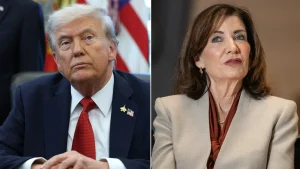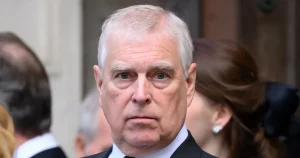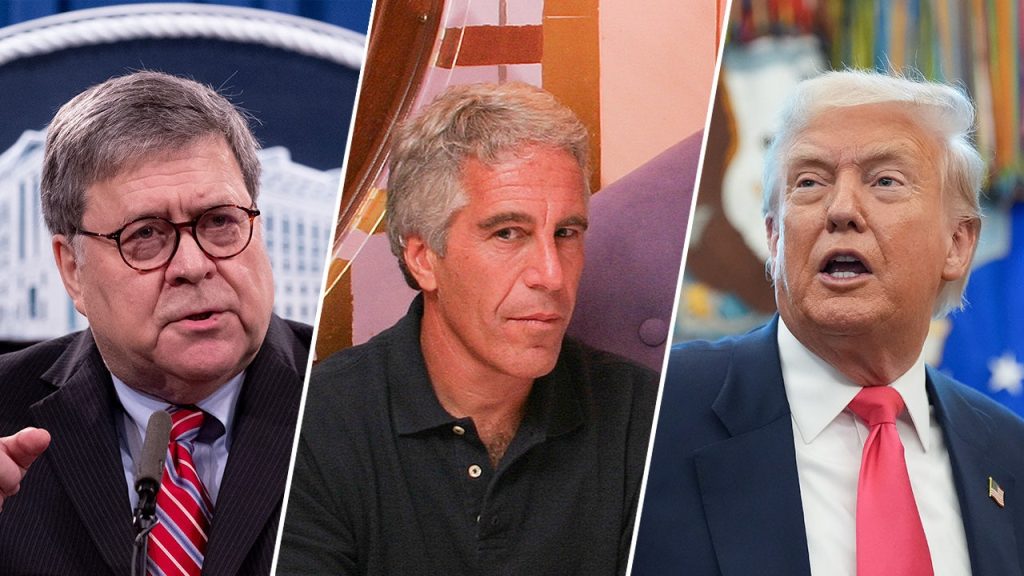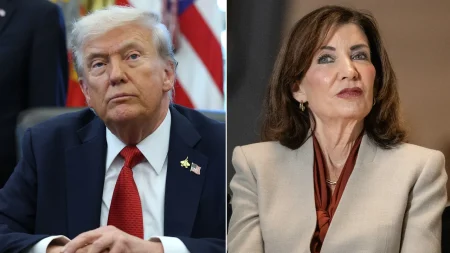Barr’s Testimony Regarding Trump-Epstein Connection: What We Now Know
In a significant development in the ongoing investigation into Jeffrey Epstein’s case, the House Oversight Committee recently released a comprehensive 120-page transcript of former Attorney General Bill Barr’s deposition. The transcript appears to support Republicans’ assertions that Barr had no knowledge of any incriminating connections between former President Donald Trump and convicted sex offender Jeffrey Epstein. This revelation comes after the committee’s top Democrat, Rep. Robert Garcia, had previously claimed that the full transcript did not exonerate Trump of wrongdoing. The House Oversight Committee has been conducting a thorough investigation into the Department of Justice’s handling of the Epstein case, issuing subpoenas to various individuals and entities, including Barr himself.
According to the transcript obtained by Fox News Digital, Barr testified that he only had two conversations with Trump regarding Epstein. One occurred after Epstein’s suicide, when Barr called Trump to prepare him for the public reaction, saying, “You better brace for this,” and assured him that the DOJ would be “investigating it very vigorously.” The second conversation’s timing remained unclear to Barr, who couldn’t recall if it happened before Epstein’s suicide, around the time of his arrest, or during subsequent developments in the case. Crucially, Barr denied that Trump ever expressed any views on the DOJ’s investigation into Epstein, gave instructions, or stated preferences regarding how it should be conducted. When questioned by Democratic Representative Jasmine Crockett about whether he had informed Trump that his name appeared in Epstein-related documents, Barr replied, “I didn’t have that kind of conversation with him.” He acknowledged that flight logs showing Trump on Epstein’s plane for commutes between locations like Miami and New York had become public, but didn’t recall discussing this specifically with the former president.
The former Attorney General’s testimony directly addressed allegations about Trump’s potential involvement with Epstein’s criminal activities. When Rep. Crockett specifically asked if Barr had “direct knowledge of any of the young women or women that claimed that they had encounters with the president through Epstein,” Barr firmly responded, “I was never told that there was evidence to support that claim.” Furthermore, Barr expressed his belief that if incriminating evidence against either Trump or former President Bill Clinton existed, it would have inevitably leaked, given the nature of the Southern District of New York as “the home of many, many a leak on investigations.” He stated confidently that if SDNY prosecutors had seen evidence of a crime, they would have pursued it regardless of the individual’s profile, saying, “If they had evidence establishing a crime, they would pursue it as such.” Barr even pointed out that investigations continued under President Biden’s administration, which he characterized as eager to find something to use against Trump, calling such potential evidence “low-hanging fruit.”
While defending his successor Attorney General Pam Bondi’s reported notification to Trump about his name appearing in Epstein files, Barr described this as standard procedure. “I think that would normally be what the attorney general would do… to give the president a heads-up if something is going to happen like that, the release of documents that have his name in it,” Barr explained. He emphasized that “it’s completely normal to tell the chief executive that his name is about to be released” and that “there’s nothing inherently wrong with that.” Throughout his testimony, Barr acknowledged certain limitations in his recollection and potential gaps in what information reached him during the investigation. He conceded that “it is possible that the SDNY did not inform me… how deep they were in the investigation of particular individuals,” though he maintained confidence in the office’s professionalism and commitment to pursuing evidence wherever it led.
The transcript reveals that Barr was willing to acknowledge shortcomings in the federal investigation of Epstein. Specifically, he described the period when authorities were unable to locate Ghislaine Maxwell, Epstein’s associate who was later convicted for her role in his sex trafficking operation, as “embarrassing.” This candid admission suggests that while Barr defended the overall integrity of the investigation, he recognized areas where law enforcement efforts fell short. Despite various controversies surrounding the case, including the DOJ’s recent decision to declare it closed, Barr remained unequivocal about one of the most contested aspects of the Epstein saga. When directly asked if he still believed Epstein committed suicide, Barr responded with a definitive “Absolutely,” dismissing conspiracy theories that have persistently surrounded Epstein’s death.
The release of this transcript has only intensified the partisan divide over the investigation’s findings. While Republicans view Barr’s testimony as clearing Trump of any criminal connection to Epstein, Democrats, including Rep. Garcia, maintain that the testimony does not fully exonerate the former president. The transcript, however, clearly documents that at least according to Barr’s knowledge and recollection, there was no evidence linking Trump to Epstein in any criminally liable way. As the House Oversight Committee continues its investigation, this testimony from a former Attorney General who served during the critical period following Epstein’s arrest and death provides important context for understanding how the Justice Department approached this high-profile and politically sensitive case. Barr’s assertion that he would have expected similar treatment for figures like Clinton demonstrates his view that political considerations did not impede the investigation, though questions about the thoroughness and effectiveness of the government’s handling of the Epstein case continue to fuel debate across the political spectrum.















